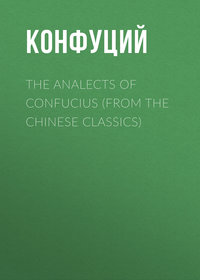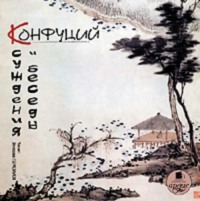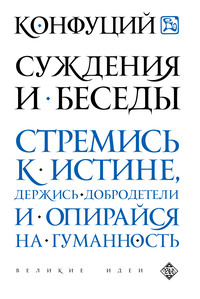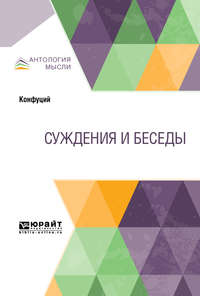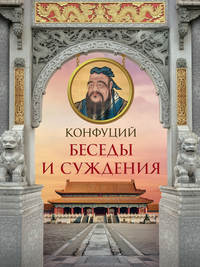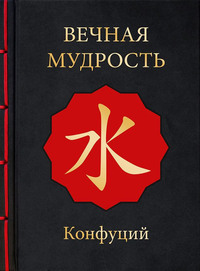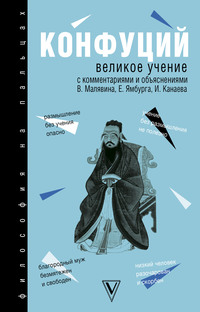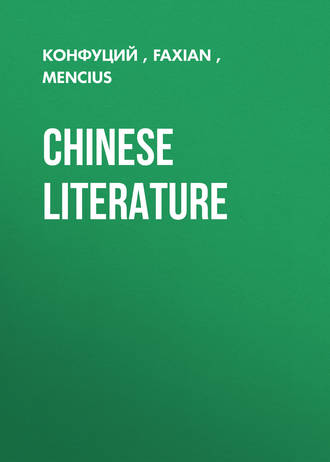 полная версия
полная версияChinese Literature
BOOK X
THE ODES OF TANG
~The King Goes to War~ The wild geese fly the bushy oaks around, With clamor loud. Suh-suh their wings resound, As for their feet poor resting-place is found. The King's affairs admit of no delay. Our millet still unsown, we haste away. No food is left our parents to supply; When we are gone, on whom can they rely? O azure Heaven, that shinest there afar, When shall our homes receive us from the war? The wild geese on the bushy jujube-trees Attempt to settle and are ill at ease;— Suh-suh their wings go flapping in the breeze. The King's affairs admit of no delay; Our millet still unsown, we haste away. How shall our parents their requirements get? How in our absence shall their wants be met? O azure Heaven, that shinest there afar, When shall our homes receive us from the war? The bushy mulberry-trees the geese in rows Seek eager and to rest around them close— With rustling loud, as disappointment grows. The King's affairs admit of no delay; To plant our rice and maize we cannot stay. How shall our parents find their wonted food? When we are gone, who will to them be good? O azure Heaven, that shinest there afar, When shall our homes receive us from the war?~Lament of a Bereaved Person~ A russet pear-tree rises all alone, But rich the growth of leaves upon it shown! I walk alone, without one brother left, And thus of natural aid am I bereft. Plenty of people there are all around, But none like my own father's sons are found. Ye travellers, who forever hurry by, Why on me turn the unsympathizing eye? No brother lives with whom my cause to plead;— Why not perform for me the helping deed? A russet pear-tree rises all alone, But rich with verdant foliage o'ergrown. I walk alone, without one brother's care, To whom I might, amid my straits repair. Plenty of people there are all around, But none like those of my own name are found. Ye travellers, who forever hurry by, Why on me turn the unsympathizing eye? No brother lives with whom my cause to plead;— Why not perform for me the helping deed?~The Drawbacks of Poverty~ On the left of the way, a russet pear-tree Stands there all alone—a fit image of me. There is that princely man! O that he would come, And in my poor dwelling with me be at home! In the core of my heart do I love him, but say, Whence shall I procure him the wants of the day? At the bend in the way a russet pear-tree Stands there all alone—a fit image of me. There is that princely man! O that he would come, And rambling with me be himself here at home! In the core of my heart I love him, but say, Whence shall I procure him the wants of the day?~A Wife Mourns for Her Husband~ The dolichos grows and covers the thorn, O'er the waste is the dragon-plant creeping. The man of my heart is away and I mourn— What home have I, lonely and weeping? Covering the jujubes the dolichos grows, The graves many dragon-plants cover; But where is the man on whose breast I'd repose? No home have I, having no lover! Fair to see was the pillow of horn, And fair the bed-chamber's adorning; But the man of my heart is not here, and I mourn All alone, and wait for the morning. While the long days of summer pass over my head, And long winter nights leave their traces, I'm alone! Till a hundred of years shall have fled, And then I shall meet his embraces. Through the long winter nights I am burdened with fears, Through the long summer days I am lonely; But when time shall have counted its hundreds of years I then shall be his—and his only!BOOK XI
THE ODES OF TS'IN
~Celebrating the Opulence of the Lords of Ts'in~ Our ruler to the hunt proceeds; And black as iron are his steeds That heed the charioteer's command, Who holds the six reins in his hand. His favorites follow to the chase, Rejoicing in his special grace. The season's males, alarmed, arise— The season's males, of wondrous size. Driven by the beaters, forth they spring, Soon caught within the hunters' ring. "Drive on their left," the ruler cries; And to its mark his arrow flies. The hunting done, northward he goes; And in the park the driver shows The horses' points, and his own skill That rules and guides them at his will. Light cars whose teams small bells display, The long-and short-mouthed dogs convey.~A Complaint~ He lodged us in a spacious house, And plenteous was our fare. But now at every frugal meal There's not a scrap to spare. Alas! alas that this good man Could not go on as he began!~A Wife's Grief Because of Her Husband's Absence~ The falcon swiftly seeks the north, And forest gloom that sent it forth. Since I no more my husband see, My heart from grief is never free. O how is it, I long to know, That he, my lord, forgets me so? Bushy oaks on the mountain grow, And six elms where the ground is low. But I, my husband seen no more, My sad and joyless fate deplore. O how is it, I long to know, That he, my lord, forgets me so? The hills the bushy wild plums show, And pear-trees grace the ground below. But, with my husband from me gone, As drunk with grief, I dwell alone. O how is it, I long to know, That he, my lord, forgets me so?~Lament for Three Brothers~ They flit about, the yellow birds, And rest upon the jujubes find. Who buried were in duke Muh's grave, Alive to awful death consigned? 'Mong brothers three, who met that fate, 'Twas sad the first, Yen-seih to see. He stood alone; a hundred men Could show no other such as he. When to the yawning grave he came, Terror unnerved and shook his frame. Why thus destroy our noblest men, To thee we cry, O azure Heaven! To save Yen-seih from death, we would A hundred lives have freely given. They flit about, the yellow birds, And on the mulberry-trees rest find. Who buried were in duke Muh's grave, Alive to awful death consigned? 'Mong brothers three, who met that fate, 'Twas sad the next, Chung-hang to see. When on him pressed a hundred men, A match for all of them was he. When to the yawning grave he came, Terror unnerved and shook his frame. Why thus destroy our noblest men, To thee we cry, O azure Heaven! To save Chung-hang from death, we would A hundred lives have freely given. They flit about, the yellow birds, And rest upon the thorn-trees find. Who buried were in duke Muh's grave, Alive to awful death consigned? 'Mong brothers three, who met that fate, 'Twas sad the third, K'ëen-foo, to see. A hundred men in desperate fight Successfully withstand could he. When to the yawning grave he came, Terror unnerved and shook his frame. Why thus destroy our noblest men, To thee we cry, O azure Heaven! To save K'ëen-foo from death, we would A hundred lives have freely given.[NOTE.—The incident related in this poem occurred in the year B.C. 620, when the duke of Muh died after playing an important part in the affairs of Northwest China. Muh required the three officers here celebrated, to be buried with him, and according to the "Historical Records" this barbarous practice began with duke Ching, Muh's predecessor. In all, 170 individuals were buried with Muh. The death of the last distinguished man of the Ts'in dynasty, the Emperor I, was subsequently celebrated by the entombment with him of all the inmates of his harem.]
~In Praise of a Ruler of Ts'in~ What trees grow on the Chung-nan hill? The white fir and the plum. In fur of fox, 'neath 'broidered robe, Thither our prince is come. His face glows with vermilion hue. O may he prove a ruler true! What find we on the Chung-nan hill? Deep nook and open glade. Our prince shows there the double Ke On lower robe displayed. His pendant holds each tinkling gem, Long life be his, and deathless fame!~The Generous Nephew~ I escorted my uncle to Tsin, Till the Wei we crossed on the way. Then I gave as I left For his carriage a gift Four steeds, and each steed was a bay. I escorted my uncle to Tsin, And I thought of him much in my heart. Pendent stones, and with them Of fine jasper a gem, I gave, and then saw him depart.BOOK XII
THE ODES OF CH'IN
~The Contentment of a Poor Recluse~My only door some pieces of crossed wood, Within it I can rest enjoy.I drink the water wimpling from the spring; Nor hunger can my peace destroy.Purged from ambition's aims I say, "For fish. We need not bream caught in the Ho;Nor, to possess the sweets of love, require To Ts'e, to find a Keang, to go."The man contented with his lot, a meal Of fish without Ho carp can make;Nor needs, to rest in his domestic joy, A Tsze of Sung as wife to take."~The Disappointed Lover~Where grow the willows near the eastern gate, And 'neath their leafy shade we could recline,She said at evening she would me await, And brightly now I see the day-star shine!Here where the willows near the eastern gate Grow, and their dense leaves make a shady gloom,She said at evening she would me await. See now the morning star the sky illume!~A Love-Song~The moon comes forth, bright in the sky;A lovelier sight to draw my eye Is she, that lady fair.She round my heart has fixed love's chain,But all my longings are in vain. 'Tis hard the grief to bear.The moon comes forth, a splendid sight;More winning far that lady bright, Object of my desire!Deep-seated is my anxious grief;In vain I seek to find relief; While glows the secret fire.The rising moon shines mild and fair;More bright is she, whose beauty rare My heart with longing fills.With eager wish I pine in vain;O for relief from constant pain, Which through my bosom thrills!~The Lament of a Lover~There where its shores the marsh surround,Rushes and lotus plants abound.Their loveliness brings to my mindThe lovelier one that I would find.In vain I try to ease the smartOf wounded love that wrings my heart.In waking thought and nightly dreams,From every pore the water streams.All round the marsh's shores are seenValerian flowers and rushes green.But lovelier is that Beauty rare,Handsome and large, and tall and fair,I wish and long to call her mine,Doomed with the longing still to pine.Nor day nor night e'er brings relief;My inmost heart is full of grief.Around the marsh, in rich display,Grow rush and lotus flowers, all gay.But not with her do they compare,So tall and large, majestic, fair.Both day and night, I nothing speed;Still clings to me the aching need.On side, on back, on face, I lie,But vain each change of posture.THE ODES OF KWEI
~The Wish of an Unhappy Man~ Where the grounds are wet and low, There the trees of goat-peach grow, With their branches small and smooth, Glossy in their tender youth. Joy it were to me, O tree, Consciousness to want like thee. Where the grounds are wet and low, There the trees of goat-peach grow. Soft and fragrant are their flowers, Glossy from the vernal showers. Joy it were to me, O tree, Ties of home to want like thee. Where the grounds are wet and low, There the trees of goat-peach grow, What delicious fruits they bear, Glossy, soft, of beauty rare! Joy it were to me, O tree, Household cares to want like thee.BOOK XIV
THE ODES OF TS'AOU
~Against Frivolous Pursuits~ Like splendid robes appear the wings Of the ephemeral fly; And such the pomp of those great men, Which soon in death shall lie! I grieve! Would they but come to me! To teach them I should try. The wings of the ephemeral fly Are robes of colors gay; And such the glory of those men, Soon crumbling to decay! I grieve! Would they but rest with me, They'd learn a better way! The ephemeral fly bursts from its hole, With gauzy wings like snow; So quick the rise, so quick the fall, Of those great men we know! I grieve! Would they but lodge with me, Forth they would wiser go.BOOK XV
THE ODES OF PIN
~The Duke of Chow Tells of His Soldiers~ To the hills of the east we went, And long had we there to remain. When the word of recall was sent, Thick and fast came the drizzling rain. When told our return we should take, Our hearts in the West were and sore; But there did they clothes for us make:— They knew our hard service was o'er. On the mulberry grounds in our sight The large caterpillars were creeping; Lonely and still we passed the night, All under our carriages sleeping. To the hills of the East we went, And long had we there to remain. When the word of recall was sent, Thick and fast came the drizzling rain. The heavenly gourds rise to the eye, With their fruit hanging under the eave. In our chambers the sow-bug we spy; Their webs on our doors spiders weave. Our paddocks seem crowded with deer, With the glow-worm's light all about. Such thoughts, while they filled us with fear, We tried, but in vain, to keep out. To the hills of the East we went, And long had we there to remain. When the word of recall was sent, Thick and fast came the drizzling rain. On ant-hills screamed cranes with delight; In their rooms were our wives sighing sore. Our homes they had swept and made tight:— All at once we arrived at the door. The bitter gourds hanging are seen, From branches of chestnut-trees high. Three years of toil away we had been, Since such a sight greeted the eye. To the hills of the East we went, And long had we there to remain. When the word of recall was sent, Thick and fast came the drizzling rain. With its wings now here, and now there, Is the oriole sporting in flight. Those brides to their husbands repair, Their steeds red and bay, flecked with white. Each mother has fitted each sash; Their equipments are full and complete; But fresh unions, whatever their dash, Can ne'er with reunions compete.~There is a Proper Way for Doing Everything~ In hewing an axe-shaft, how must you act? Another axe take, or you'll never succeed. In taking a wife, be sure 'tis a fact, That with no go-between you never can speed. In hewing an axe-shaft, hewing a shaft, For a copy you have the axe in your hand. In choosing a wife, you follow the craft, And forthwith on the mats the feast-vessels stand.PART II.—MINOR ODES TO THE KINGDOM
BOOK I
DECADE OF LUH MING
~A Festal Ode~ With sounds of happiness the deer Browse on the celery of the meads. A nobler feast is furnished here, With guests renowned for noble deeds. The lutes are struck; the organ blows, Till all its tongues in movement heave. Each basket loaded stands, and shows The precious gifts the guests receive. They love me and my mind will teach, How duty's highest aim to reach. With sounds of happiness the deer The southern-wood crop in the meads, What noble guests surround me here, Distinguished for their worthy deeds! From them my people learn to fly Whate'er is mean; to chiefs they give A model and a pattern high;— They show the life they ought to live. Then fill their cups with spirits rare, Till each the banquet's joy shall share. With sounds of happiness the deer The salsola crop in the fields. What noble guests surround me here! Each lute for them its music yields. Sound, sound the lutes, or great or small. The joy harmonious to prolong;— And with my spirits rich crown all The cups to cheer the festive throng. Let each retire with gladdened heart, In his own sphere to play his part.~A Festal Ode Complimenting an Officer~ On dashed my four steeds, without halt, without stay, Though toilsome and winding from Chow was the way. I wished to return—but the monarch's command Forbade that his business be done with slack hand; And my heart was with sadness oppressed. On dashed my four steeds; I ne'er slackened the reins. They snorted and panted—all white, with black manes. I wished to return, but our sovereign's command Forbade that his business be done with slack hand;— And I dared not to pause or to rest. Unresting the Filial doves speed in their flight, Ascending, then sweeping swift down from the height, Now grouped on the oaks. The king's high command Forbade that his business be done with slack hand;— And my father I left, sore distressed. Unresting the Filial doves speed in their flight, Now fanning the air and anon they alight On the medlars thick grouped. But our monarch's command Forbade that his business be done with slack hand;— Of my mother I thought with sad breast. My four steeds I harnessed, all white and black-maned, Which straight on their way, fleet and emulous strained. I wished to return; and now venture in song The wish to express, and announce how I long For my mother my care to attest.[NOTE.—Both Maou and Choo agree that this ode was composed in honor of the officer who narrates the story in it, although they say it was not written by the officer himself, but was put into his mouth, as it were, to express the sympathy of his entertainer with him, and the appreciation of his devotion to duty.]
~The Value of Friendship~ The woodmen's blows responsive ring, As on the trees they fall; And when the birds their sweet notes sing, They to each other call. From the dark valley comes a bird, And seeks the lofty tree. Ying goes its voice, and thus it cries, "Companion, come to me." The bird, although a creature small, Upon its mate depends; And shall we men, who rank o'er all, Not seek to have our friends? All spirits love the friendly man, And hearken to his prayer. What harmony and peace they can Bestow, his lot shall share. Hoo-hoo the woodmen all unite To shout, as trees they fell. They do their work with all their might;— What I have done I'll tell. I've strained and made my spirits clear, The fatted lambs I've killed. With friends who my own surname bear, My hall I've largely filled. Some may be absent, casually, And leave a broken line; But better this than absence by An oversight of mine. My court I've sprinkled and swept clean, Viands in order set. Eight dishes loaded stand with grain; There's store of fatted meat. My mother's kith and kin I'm sure I've widely called by name. That some be hindered better is Than ~I~ give cause for blame. On the hill-side the trees they fell, All working with good-will I labor too, with equal zeal. And the host's part fulfil. Spirits I've set in order meet, The dishes stand in rows. The guests are here; no vacant seat A brother absent shows. The loss of kindly feeling oft From slightest things shall grow, Where all the fare is dry and spare, Resentments fierce may glow. My store of spirits is well strained, If short prove the supply, My messengers I straightway send, And what is needed buy. I beat the drums, and in the dance Lead joyously the train. Oh! good it is, when falls the chance The sparkling cup to drain.~The Response to a Festal Ode~ Heaven shields and sets thee fast. It round thee fair has cast Thy virtue pure. Thus richest joy is thine;— Increase of corn and wine, And every gift divine, Abundant, sure. Heaven shields and sets thee fast. From it thou goodness hast; Right are thy ways. Its choicest gifts 'twill pour, That last for evermore, Nor time exhaust the store Through endless days. Heaven shields and sets thee fast, Makes thine endeavor last And prosper well. Like hills and mountains high, Whose masses touch the sky; Like streams aye surging by; Thine increase swell! With rite and auspice fair, Thine offerings thou dost bear, And son-like give, The season's round from spring, To olden duke and king, Whose words to thee we bring:— "Forever live," The spirits of thy dead Pour blessings on thy head, Unnumbered sweet. Thy subjects, simple, good, Enjoy their drink and food. Our tribes of every blood Follow thy feet. Like moons that wax in light; Or suns that scale the height; Or ageless hill; Nor change, nor autumn know; As pine and cypress grow; The sons that from thee flow Be lasting still!~An Ode of Congratulation~ The russet pear-tree stands there all alone; How bright the growth of fruit upon it shown! The King's affairs no stinting hands require, And days prolonged still mock our fond desire. But time has brought the tenth month of the year; My woman's heart is torn with wound severe. Surely my warrior lord might now appear! The russet pear-tree stands there all alone; How dense the leafy shade all o'er it thrown! The King's affairs require no slackening hand, And our sad hearts their feelings can't command. The plants and trees in beauty shine; 'tis spring. From off my heart its gloom I fain would fling. This season well my warrior home may bring! I climbed that northern hill, and medlars sought; The spring nigh o'er, to ripeness they were brought. "The King's affairs cannot be slackly done";— 'Tis thus our parents mourn their absent son. But now his sandal car must broken be; I seem his powerful steeds worn out to see. Relief has gone! He can't be far from me! Alas! they can't have marched; they don't arrive! More hard it grows with my distress to strive. The time is passed, and still he is not here! My sorrows multiply; great is my fear. But lo! by reeds and shell I have divined, That he is near, they both assure my mind;— Soon at my side my warrior I shall find!~An Ode on the Return of the Troops~ Forth from the city in our cars we drove, Until we halted at the pasture ground. The general came, and there with ardor strove A note of zeal throughout the host to sound. "Direct from court I come, by orders bound The march to hasten";—it was thus he spake. Then with the carriage-officers around, He strictly charged them quick despatch to make:— "Urgent the King's affairs, forthwith the field we take." While there we stopped, the second corps appeared, And 'twixt Us and the city took its place. The guiding standard was on high upreared, Where twining snakes the tortoises embrace, While oxtails, crest-like, did the staff's top grace. We watched the sheet unfolding grandly wave; Each flag around showed falcons on its face. With anxious care looked on our leader brave; Watchful the carriage-officers appeared and grave. Nan Chung, our chief, had heard the royal call To go where inroad by Heen-yuns was made, And 'cross the frontier build a barrier wall. Numerous his chariots, splendidly arrayed! The standards—this where dragons were displayed, And that where snakes round tortoises were coiled— Terrific flew. "Northward our host," he said, "Heaven's son sends forth to tame the Heen-yun wild." Soon by this awful chief would all their tribes be foiled. When first we took the field, and northward went, The millet was in flower;—a prospect sweet. Now when our weary steps are homeward bent, The snow falls fast, the mire impedes our feet. Many the hardships we were called to meet, Ere the King's orders we had all fulfilled. No rest we had; often our friends to greet The longing came; but vain regrets we stilled; By tablets stern our hearts with fresh resolve were thrilled. "Incessant chirp the insects in the grass; All round about the nimble hoppers spring. From them our thoughts quick to our husbands pass? Although those thoughts our hearts with anguish wring. Oh! could we see them, what relief 'twould bring! Our hearts, rejoiced, at once would feel at rest." Thus did our wives, their case deploring, sing; The while our leader farther on had pressed, And smitten with his power the wild Jung of the west. The spring days now are lengthening out their light; The plants and trees are dressed in living green; The orioles resting sing, or wing their flight; Our wives amid the southern-wood are seen, Which white they bring, to feed their silkworms keen. Our host, returned, sweeps onwards to the hall, Where chiefs are questioned, shown the captives mean Nan Chung, majestic, draws the gaze of all, Proud o'er the barbarous foe his victories to recall.BOOK II
THE DECADE OF PIH H'WA
~An Ode Appropriate to a Festivity~ The dew lies heavy all around, Nor, till the sun shines, leaves the ground. Far into night we feasting sit; We drink, and none his place may quit. The dew lies heavy, and its gems Stud the luxuriant, grassy stems. The happy night with wassail rings; So feasted here the former kings. The jujube and the willow-tree All fretted with the dew we see. Each guest's a prince of noble line, In whom the virtues all combine. The t'ung and e their fruits display, Pendant from every graceful spray. My guests are joyous and serene, No haggard eye, no ruffled mien.

